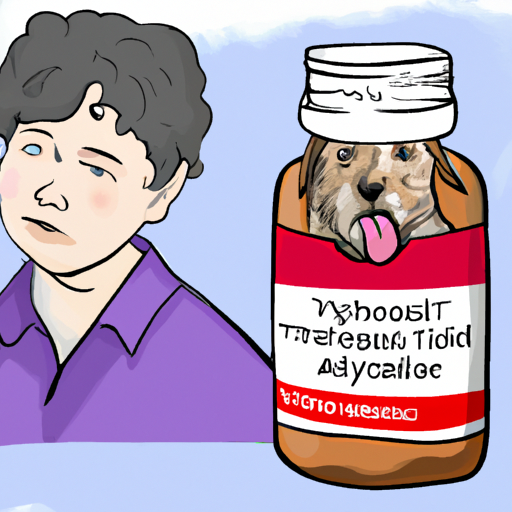Understanding Hypothyroidism
Hypothyroidism in dogs is a common endocrine disorder, often affecting middle-aged and older dogs. As a caregiver, you may notice your furry friend gaining weight, shedding excessively, or showing signs of lethargy. These can all be warning signs of hypothyroidism. But don’t panic, it’s a manageable condition, and you can play a significant role in ensuring your dog leads a healthy, happy life.
Recognizing the Symptoms
Spotting the symptoms early can be instrumental in managing the condition effectively. Here’s what you should look out for:
- Unexplained weight gain
- Excessive shedding or hair loss
- Lethargy
- Skin infections
- Cold intolerance
Treatment Options
Once diagnosed, your vet will typically prescribe synthetic thyroid hormone medication. It’s important to remember:
- The medication needs to be given twice daily.
- Regular blood tests are required to monitor your dog’s thyroid levels.
- It’s a lifelong treatment, and consistency is key.
| Medication | Dosage | Frequency |
|---|---|---|
| Synthetic Thyroid Hormone | Depends on dog’s weight | Twice daily |
Dietary Changes
In addition to medication, making some dietary changes can greatly benefit your dog. High-quality protein, omega-3 fatty acids, and complex carbohydrates can all support thyroid health.
- Opt for dog food designed for thyroid health.
- Supplement with omega-3 fatty acids.
- Avoid feeding your dog soy products.
Regular Exercise
Regular exercise is crucial in managing hypothyroidism. It not only helps control weight but also boosts overall metabolism, which is often slowed down due to the condition. Aim for a balance between high-energy and low-impact exercises.
Frequently Asked Questions
Q: Can hypothyroidism in dogs be cured?
A: No, but it can be effectively managed with medication, diet, and exercise.
Q: How long does it take for the medication to work?
A: It usually takes a few weeks before you start noticing improvements.
Q: Can a dog live a normal life with hypothyroidism?
A: Yes, with proper management, dogs with hypothyroidism can lead happy, healthy lives.
Remember, you’re not alone in this journey. Reach out to your vet or a pet health support group for advice and encouragement. Your dog is lucky to have a caring and committed caregiver like you.



